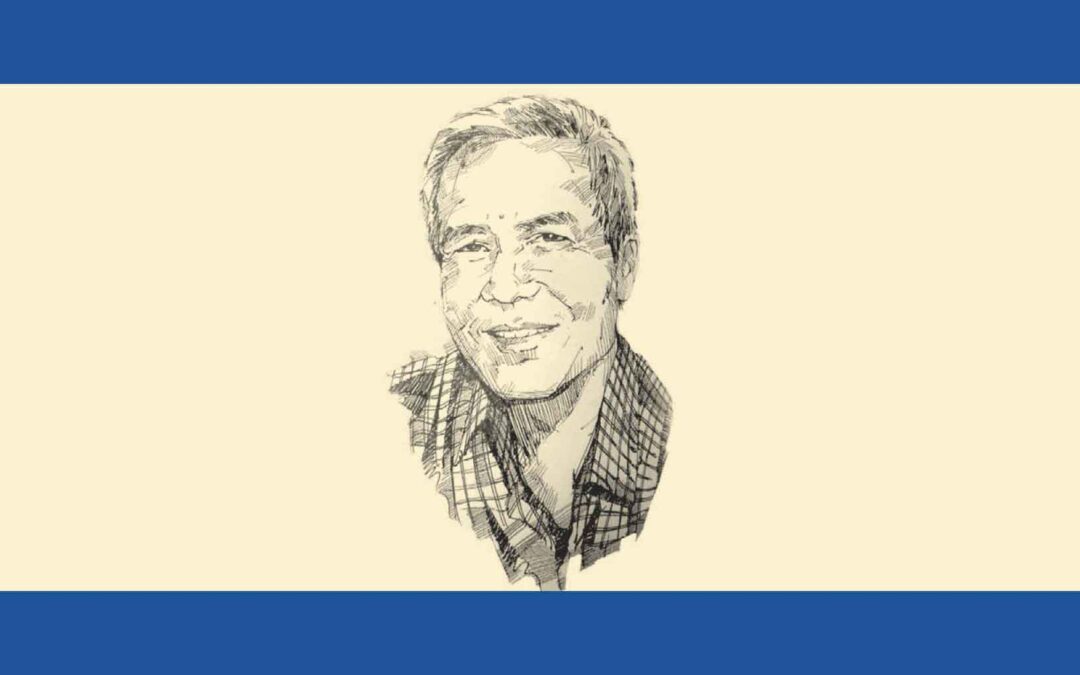
Dec 11, 2014 | News, Publications, Reports
Two years after prominent Laotian activist Sombath Somphone was last seen at a police checkpoint, the Laotian government must do more to investigate his suspected enforced disappearance, said the ICJ in a new report released today.
In the report, Missed Opportunities: Recommendations for Investigating the Disappearance of Sombath Somphone, which was co-authored by Michael Taylor QPM, a leading international investigator, the ICJ noted that despite the passage of two years since Sombath Somphone’s apparent enforced disappearance on December 15, 2012, very little information about the progress of investigation has been released to the public or his family.
“The fact that the Lao PDR government’s last report on the progress of the investigation was released over 18 months ago raises serious concerns as to whether the Laotian authorities are in fact carrying out an effective investigation into this case as they are required to do under international law,” said Sam Zarifi, ICJ’s Regional Director for Asia and the Pacific.
“It is not enough for the Laotian government simply to assert it is investigating this case. International law obliges Lao PDR authorities to conduct an investigation that is credible and effective, along the lines suggested in ICJ’s report.”
Among other recommendations, the ICJ’s report suggests a range of investigative steps that should be addressed by the authorities of Laos PDR including establishing a relationship with Sombath Somphone’s family, carrying out a proper technical assessment of the Closed circuit Television (CCTV) footage of his abduction, analyzing relevant cell phone information from telephone cells and towers, and mandating an independent expert body to review the results of the investigation to date and make recommendations.
The Lao PDR government has denied any involvement in Sombath Somphone’s abduction.
But reports released by police reveal a wholly inadequate investigation that has not come any closer to a credible explanation as to his fate or whereabouts.
“The ICJ hopes that this report will assist the Laotian authorities to identify potential leads in the case so that the truth as to the whereabouts and fate of Sombath Somphone can finally be established and those who are responsible for criminal conduct and violations of his rights can be brought to justice,” said Zarifi.
“One of the conclusions of the ICJ’s review of the publicly available material regarding this case is that this case remains ‘eminently solvable’ if proper investigative methodology is followed.”
Key recommendations in the report include:
- Formulate a sensitive family liaison strategy that ensures that their right to be regularly provided with information about the progress and results of the investigation are respected in a manner that also ensures the effectiveness of the investigation.
- Implement a CCTV strategy that ensures the capture and systematic analysis of all relevant material and the submission of material to accredited independent and expert laboratories that will provide the best opportunity for enhancement of critical detail.
- Seek the assistance of appropriate agencies in other countries in the forensic examination and analysis of crime scenes, vehicles, phone and CCTV data, and any physical or other evidence.
- Ensure an independent comprehensive review of the scope, methodology and results of the investigation to date is carried out by a competent, independent and relevantly expert body. Such a body should have the authority to request and receive all relevant information, question individuals and make recommendations. All officials and experts who have been involved in the investigation to date should cooperate and provide information to the independent body carrying out the review.
Contact:
Sam Zarifi, ICJ Asia Regional Director, (Bangkok), t:+66 807819002, e-mail: sam.zarif(a)icj.org
Kingsley Abbott, ICJ International Legal Adviser, (Bangkok), t:+66 944701345, e-mail: kingsley.abbott(a)icj.org
Background:
Sombath Somphone, Lao PDR’s most prominent community development advocate and a Ramon Magsaysay Award winner, was last seen on December 15, 2012, on a road in the capital Vientiane.
Closed circuit Television footage showed him being stopped at a police checkpoint, exiting his vehicle, and after his vehicle was driven away by an unidentified man, getting into another vehicle with unidentified men and being driven away. He has not been seen since.
As a State Party to the International Covenant on Civil and Political Rights (ICCPR and Convention Against Torture and Other, Inhuman or Degrading Treatment or Punishment (CAT), the Government of Lao PDR has the duty to carry out independent, impartial and effective investigations into cases of alleged enforced disappearance.
Download the report in PDF:
Lao-Somphone disappearance-Publications-report-2014-ENG (full report in English, PDF)
Lao-Somphone disappearance-Publications-report-2014-LAO (full report in Laotian, PDF)
Read also:
Lao PDR: government must tackle enforced disappearance case
ICJ submission on the Universal Periodic Review of Lao

Mar 27, 2014 | Events, News, Publications, Reports, Seminar and conference reports
The ICJ hosted over 40 human rights defenders (HRDs) from Southern, Eastern and Western Africa to deliberate on strategies for enhancing the protection of human rights and human rights defenders.
The event took place on 27-28 March 2014 in Tswane, Pretoria.
Several African dignitaries attended the strategy session, including various independent experts from the African Union and United Nations focusing on protection and promotion of the work of human rights defenders.
This reflection session came in the wake of the increased sophistication of acts that undermine the independent, safe and secure operation of human rights defenders in Africa.
These acts include restrictive and punitive legislative enactments, in countries such as Uganda, Ethiopia and Kenya, and extra judicial killings and enforced disappearances in countries such as the Democratic Republic of Congo, Sudan, and South Sudan.
Other acts undermining the work and security of human rights defenders include the prohibition of access to funding; defamatory labeling of HRDs as “spies”, “unpatriotic”, “traitors”, and “foreign agents”; and the passing of laws criminalizing homosexuality.
The Universally acclaimed Declaration on Human Rights Defenders has recorded a greater number of breaches in recent times than before.
There is an increasing need for defenders to identify and reflect on opportunities to strengthen their collective responses and to provide rapid in-country and regional support and solidarity that nurtures a spirit of resilience, collectiveness and camaraderie within universally accepted norms of the defence of human rights.
Contact
Arnold Tsunga, Director, ICJ Africa Regional Programme, Arnold.tsunga(a)icj.org, +27731318411, or
Martin Okumu-Masiga, Deputy Director, ICJ Afria Regional Programme, Martin.okumu-masiga(a)icj.org, +27110248268 (full text in PDF)
Southern Africa-Strategic Session rapide response-Publications-Workshop report-2015-ENG (full text in PDF)
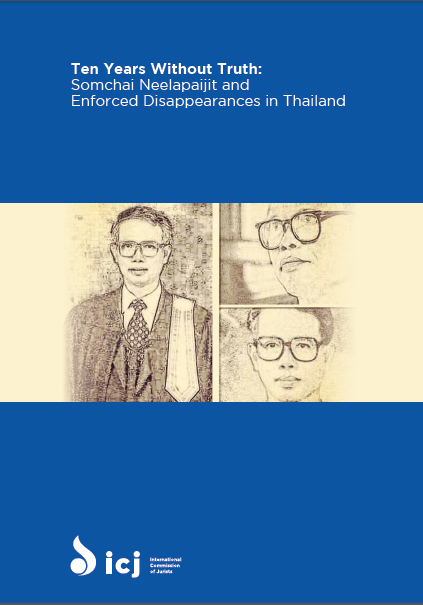
Mar 7, 2014 | News, Publications, Reports
A new ICJ report criticizes the Thai Government’s failure to take the steps necessary to establish the fate and whereabouts of missing lawyer Somchai Neelapaijit, saying it illustrates the challenges of achieving justice in cases of serious human violations in Thailand.
In the report, Ten Years Without Truth: Somchai Neelapaijit and Enforced Disappearances in Thailand, the ICJ documents the tortuous legal history of the case.
It highlights several key problems, such as poor use of forensic evidence, failure to follow and develop leads, unduly restrictive interpretation of national and international law, and above all, a lack of political will to resolve a case that remains emblematic of the culture of impunity in Thailand.
“Over the past 10 years, this case has taken many unexpected turns, including the disappearance of a prime suspect, admissions of Somchai’s death from officials while the courts have rejected such a finding, and most recently, a statement from the Department of Special Investigations that it had lost, and then found, the case files,” said Sam Zarifi, ICJ’s Regional Director for Asia and the Pacific.
“The Royal Thai Government has not exhausted all potential areas of inquiry and it must continue this investigation. There is no statute of limitations on an enforced disappearance and Somchai’s case is not forgotten in Thailand or around the world.”
Somchai, a lawyer and human rights defender, was stopped at a Bangkok roadside on March 12, 2004 and pulled from his car by a group of men. He has not been seen since.
At the time, Somchai was defending clients from Thailand’s restive southern provinces who were accused of attacking a military base as part of the ongoing insurgency in the region. Somchai had alleged police tortured the Muslim suspects.
Ten years later, Somchai’s wife, Angkhana Neelapaijit, and her family are no closer to knowing the truth about what happened to him.
“Somchai’s enforced disappearance, and the failure of the Royal Thai government to provide accountability or even basic information about his fate are emblematic of the challenges of achieving justice in cases of serious human rights violations in Thailand,” said Zarifi. “Enforced disappearance is not only a serious human rights violation but also a crime under international law.”
Thailand signed, but has not yet ratified, the Convention Against Enforced Disappearance in January 2012. Pending the ratification, Thailand must desist from any acts that would defeat the objective and purpose of the convention, which places an obligation on State Parties to make enforced disappearance a criminal offence and treat family members of a ‘disappeared’ person as victims in their own right.
The ICJ has followed Somchai’s case closely and worked with Angkhana Neelapaijit since 2004.
“The Royal Thai government’s failure to shed any more light on the enforced disappearance of Somchai Neelapaijit, despite providing compensation for his family and finding him to be ‘disappeared’, contradicts multiple past declarations of its commitment to seeking justice, or at least truth, including by several former Prime Ministers, Attorneys General, and officials,” the report says.
“It also contradicts official commitments before the United Nations Human Rights Council in March 2008.”
The ICJ’s report calls on the Royal Thai government to prioritize and advance the investigation into Somchai’s disappearance in a manner that conforms to its international obligations. It also recommends that Thailand:
–Ratify the Convention Against Enforced Disappearance;
–Enact legislation that makes enforced disappearance a specific crime in Thai domestic law, together with penalties that recognize its extreme seriousness;
–Amend existing Thai law to conform to the Convention Against Enforced Disappearance, as well as the State’s obligations, including with respect to effective remedy and reparation, under the ICCPR and CAT;
–Provide Angkhana Neelapaijit and her family with effective remedy and full reparation, in particular knowledge and clarification of the facts leading to the enforced disappearance and the progress and results of the Department of Special Investigations, and;
–Address the recommendations the ICJ made to the DSI in its letter of February 4, 2014 with respect to its investigation.
CONTACT
Sam Zarifi, ICJ Asia-Pacific Regional Director, (Bangkok), t:+66 807819002, e-mail: sam.zarifi(a)icj.org
Craig Knowles, ICJ Media & Communications, (Bangkok), t:+66 819077653, e-mail: craig.knowles(a)icj.org
Download the full report in PDF:
Ten Years Without Truth- Somchai Neelapaijit and Enforced Disappearances in Thailand – report – 2014
Thailand-Ten Years Without Truth-Publications-Reports-2014-THAI
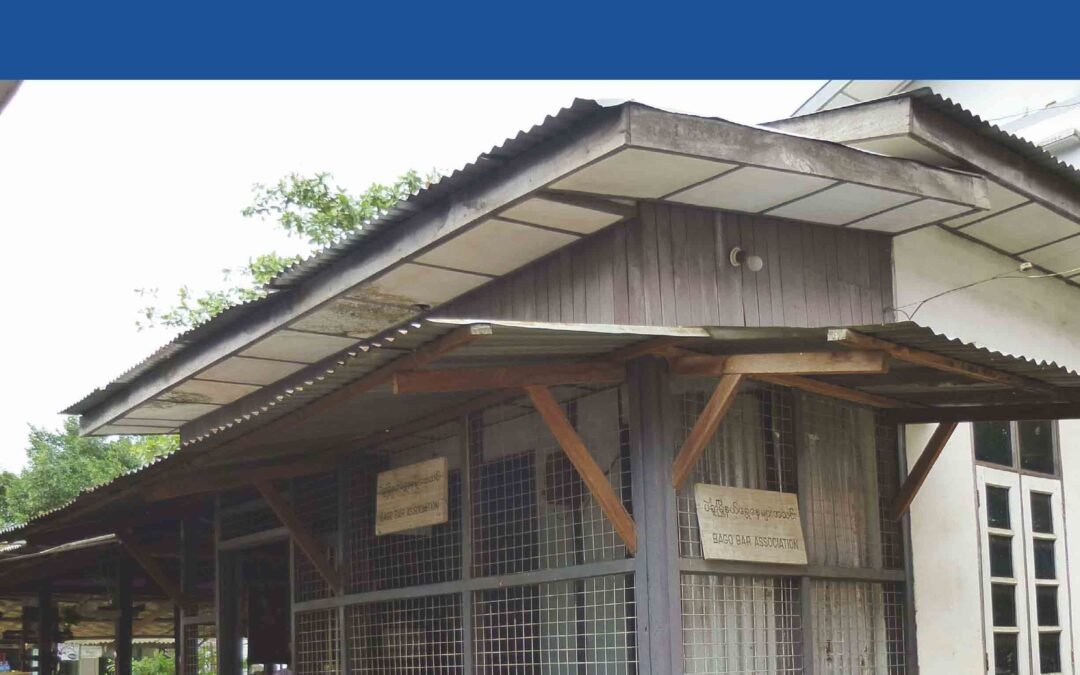
Dec 3, 2013 | News, Publications, Reports, Thematic reports
Lawyers continue to encounter impediments to the exercise of their professional functions and freedom of association, as well as pervasive corruption, although they have been able to act with greater independence, says the ICJ in a new report launched today.
Right to Counsel: The Independence of Lawyers in Myanmar – based on interviews with 60 lawyers in practice in the country – says authorities have significantly decreased their obstruction of, and interference in, legal processes since the country began political reforms in 2011.
“The progress made in terms of freedom of expression and respect for the legal process is very visible,” said Sam Zarifi, ICJ Asia-Pacific director. “But despite the improvements, lawyers still face heavy restrictions and attacks on their independence, which can result in uncertainty and fear, particularly when it comes to politically sensitive issues.”
Systemic corruption continues to affect every aspect of a lawyer’s career and, as a result, is never absent from lawyers’ calculations vis-à-vis legal fees, jurisdictions and overall strategy.
“Corruption is so embedded in the legal system that it is taken for granted,” Zarifi said. “When the public also generally assumes that corruption undermines the legal system, this severely weakens the notion of rule of law.”
“Lawyers in Myanmar, as elsewhere, play an indispensable role in the fair and effective administration of justice,” Zarifi added. “This is essential for the protection of human rights in the country and the establishment of an enabling environment for international cooperation towards investment and development.”
But lawyers in Myanmar lack an independent Bar Council, the report says, noting that the Myanmar Bar Council remains a government-controlled body that fails to adequately protect the interests of lawyers in the country and promote their role in the fair and effective administration of justice.
The ICJ report shows that other multiple long-standing and systemic problems affect the independence of lawyers, including the poor state of legal education and improper interferences on the process of licensing of lawyers.
In its report, which presents a snapshot of the independence of lawyers in private practice in Myanmar in light of international standards and in the context of the country’s rapid and on-going transition, the ICJ makes a series of recommendations:
- The Union Attorney-General and Union Parliament should significantly reform the Bar Council to ensure its independence;
- The Union Attorney-General and Union Parliament should create a specialized, independent mechanism mandated with the prompt and effective criminal investigation of allegations of corruption;
- The Ministry of Education should, in consultation with the legal profession, commit to improving legal education in Myanmar by bolstering standards of admission to law school, law school curricula, and instruction and assessment of students.
Contact:
Sam Zarifi, ICJ Asia-Pacific Regional Director, (Bangkok), t:+66 807819002 e-mail: sam.zarifi(a)icj.org
Craig Knowles, ICJ Media & Communications, (Bangkok), t:+66 819077653, e-mail: knocraig(a)gmail.com
Myanmar-Right to Counsel-publications-report-2013-ENG (download full text in pdf)
MYANMAR-Right to Counsel-Publications-report-2015-BUR (Burmese version in pdf)
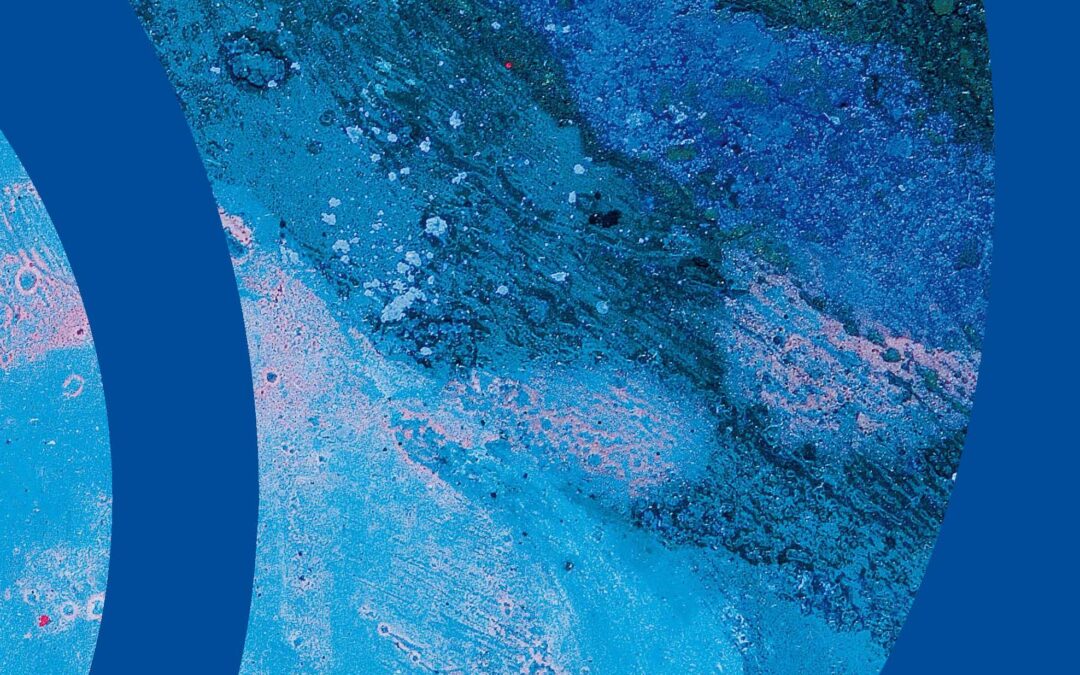
Oct 4, 2013 | News, Publications, Reports, Trial observation reports
In a report published today, the ICJ details a catalogue of violations of fair trial rights and other serious human rights violations committed against those detained in the context of the UAE 94 trial.
The report, Mass convictions following an unfair trial: The UAE 94 case, comes amidst a crackdown on individuals calling for peaceful political reform, who continue to be arrested, detained, prosecuted and convicted for the lawful exercise of their rights to freedom of expression, association and assembly.
The UAE authorities must end this crackdown and ensure the immediate and unconditional release of those convicted in the UAE 94 trial, the ICJ says.
“The UAE 94 trial has been marred with a litany of violations of fair trial rights. The convictions of 69 individuals following this trial must be quashed and those imprisoned must be immediately and unconditionally released”, said Said Benarbia, senior legal adviser of the ICJ Middle East and North Africa Programme.
Those convicted on 2 July 2013 were found guilty of “establishing, founding and administering an organization, with the aim of challenging the basic principles upon which the government of the State is based, taking control of the government and establishing a secret structure for the organization”.
Fifty-six of them were sentenced to ten years’ imprisonment, five of them to seven years’ imprisonment and eight others, who were tried in absentia, to fifteen years’ imprisonment. The remaining 25 accused were acquitted.
The ICJ notes that, since 31 July 2013, many of the prisoners convicted in the UAE 94 case have begun a hunger strike to protest against the conditions of their detention.
They have reportedly been subjected to various forms of ill-treatment, including beatings by prison guards and light depravation.
The authorities have failed to investigate the many human rights abuses alleged to have been committed against those detained in the context of the UAE 94 case, the ICJ says.
Instead, the UAE authorities have continued their crackdown on political activists and government critics, including those that have publicly spoken out in support of the UAE 94 or against the conditions of detention of those imprisoned.
“Rather than live up to the commitment made by the UAE to the Human Rights Council to “place human rights at the top of its priorities”, the UAE authorities have embarked on a sustained campaign to suppress any form of peaceful dissent and all calls for political reform,” Benarbia added. “They must comply with their obligations under international law and bring an end to this cycle of arbitrary arrest, detention, prosecution and unfair trials against of all those that dare to speak out.”
Key findings of the report:
- Most of the detainees were not informed of the reasons for their arrest and promptly notified of the charges against them.
- They were denied their right to prompt access to a lawyer, including during interrogation and were not brought before a judge or a judicial authority within 48 hours of their arrest.
- Most of the detainees were held in incommunicado detention and in secret and unofficial detention centres.
- They were also held in prolonged solitary confinement, which in some cases lasted more than 236 days.
- Most of the detainees were reportedly subjected to torture or other ill treatment by the authorities, including severe beatings, pulling out detainees’ hair, sleep deprivation, exposure to extreme light during the day and night, death threats and other threats and verbal abuse, as well as prolonged incommunicado detention and solitary confinement.
- The Court failed to investigate or order the investigation of such allegations.
- To the contrary, statements and “confessions” alleged to have been obtained as a result of torture or other ill-treatment were admitted as evidence by the court.
Contact :
Said Benarbia, ICJ Senior Legal Adviser of the Middle East and North Africa Programme, tel: 41 22 979 38 17, e-mail: said.benarbia(a)icj.org
UAE-Violations at UAE 94 Trial-Publications-Reports-2013 (full text in pdf)
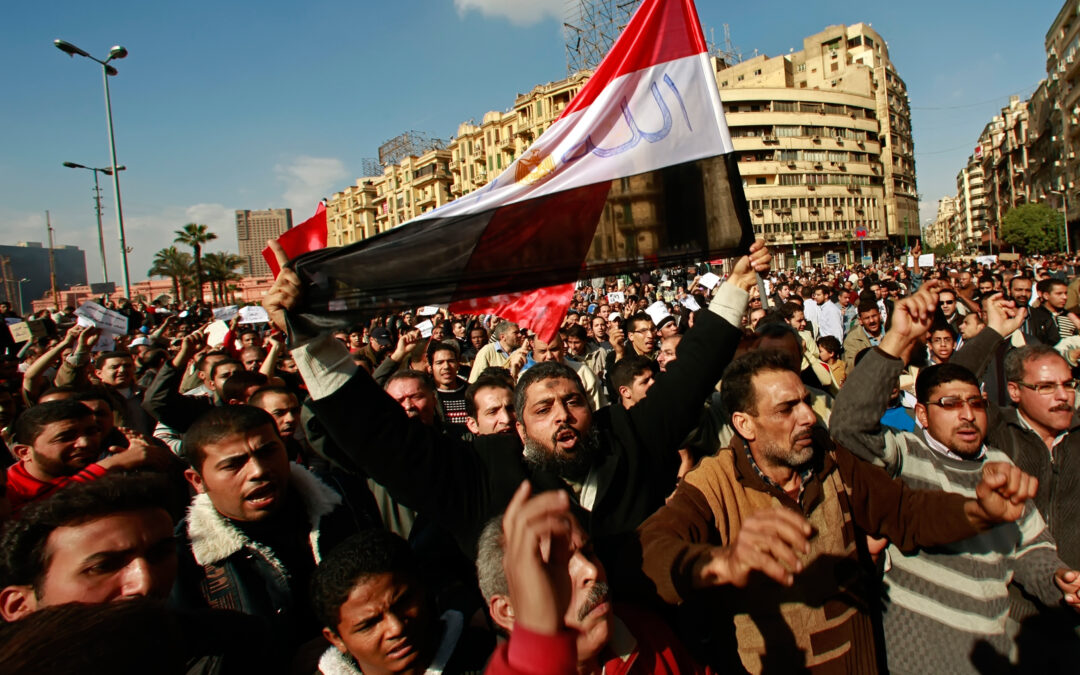
Nov 13, 2012 | News, Publications, Reports
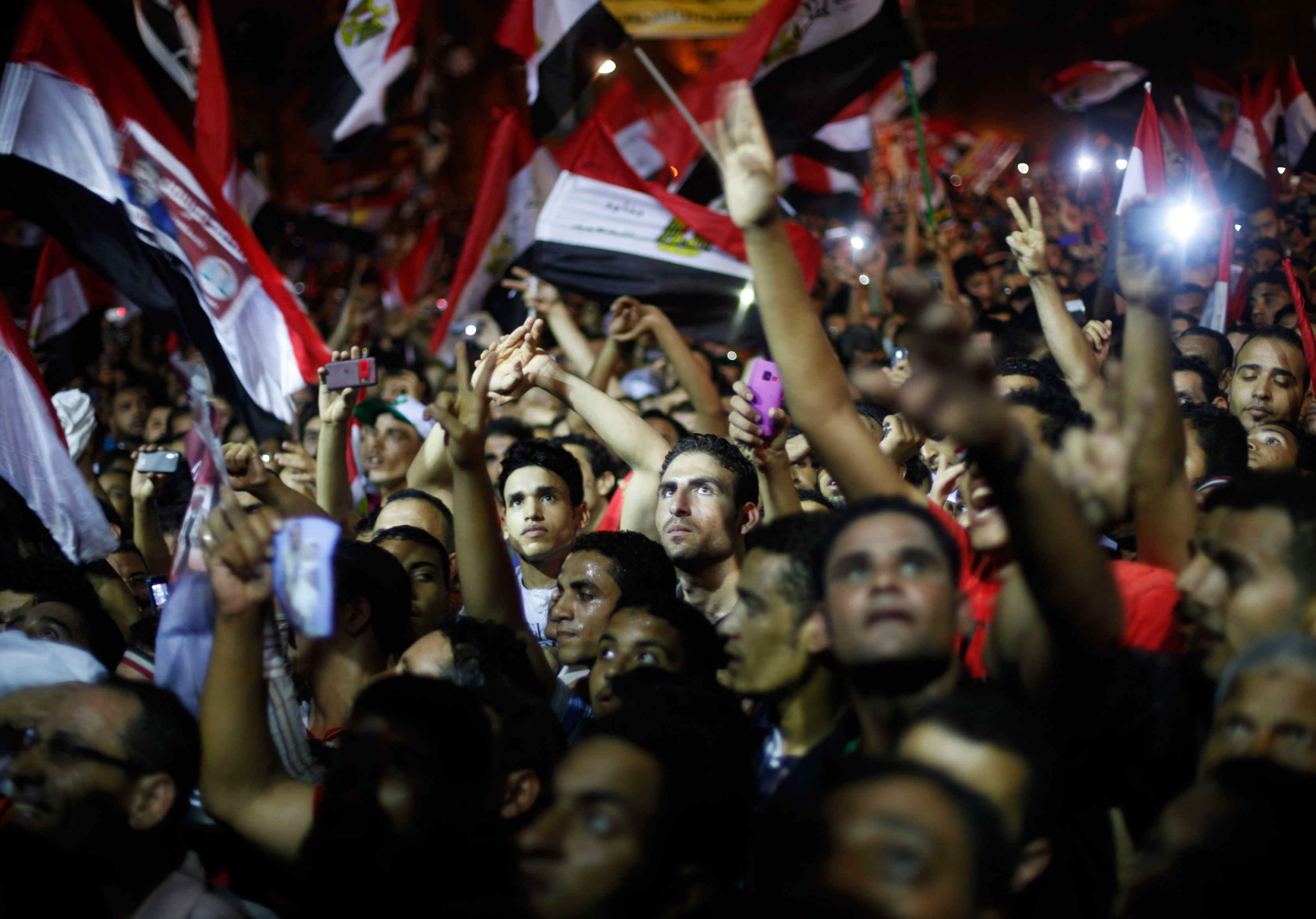 A new ICJ report shows that the constitutional reform process in Egypt has failed to meet international principles of inclusive participation and transparency, thereby undermining the transition to democracy.
A new ICJ report shows that the constitutional reform process in Egypt has failed to meet international principles of inclusive participation and transparency, thereby undermining the transition to democracy.
“The Egyptian authorities, including the Constituent Assembly, have failed so far to meet the aspirations of the Egyptian people to adopt a Constitution that establishes the rule of law, recognizes and protects universally accepted human rights without restriction, guarantees the independence of the judiciary in all circumstances, and ensures the effectiveness of democratic institutions,” said Wilder Tayler, ICJ Secretary General.
The ICJ is calling upon the Egyptian authorities to address the challenges currently facing the constitutional reform process, as a matter of urgency; ensure that this process is in full compliance with international standards of inclusive participation and transparency; and guarantee that the new Constitution fully conforms with the rule of law and international law, including human rights standards.
The ICJ report Egypt’s new Constitution: a flawed process; uncertain outcomes details how, in overseeing the process leading to the adoption of a new Constitution, the Supreme Council of Armed Forces (SCAF) failed to ensure the rights of Egyptians to take part in public affairs and to meaningfully participate in the drafting and adoption of a new Constitution.
“Instead of paving the way for a clear and participatory reform process, the SCAF consistently opted for opaque, rushed and non-consensual policies that aimed to shield the armed forces from any form of accountability and that have severely undermined both the legitimacy of the process itself and its outcomes,” Tayler added.
Even though the administration of President Morsi replaced the SCAF on 30 June 2012, the constitution-making process continues to be carried out under the legal framework enacted by the SCAF.
The report also describes how several judicial decisions, in particular the dissolution of the first Constituent Assembly, by a decision from the High Administrative Court, and the dissolution of the People’s Assembly, following a decision by the Supreme Constitutional Court, have contributed to the confusion and uncertainty regarding the drafting of a new constitution.
As a result of this confused process, the draft of the new Constitution, published by the Constituent Assembly on 14 October 2012, has failed to provide for effective guarantees to reinforce the protection of human rights and the supremacy of the rule of law, including by ensuring that the powers of the State are not exercised arbitrarily.
“The draft Constitution does not sufficiently incorporate the rule of law and international law, including human rights standards. This is particularly evident as regards the accountability of the armed forces and their subordination to a legally constituted civilian authority, the content and scope of constitutional human rights, and the compliance of the whole judicial system, including the Office of the Public Prosecutor and the Constitutional Court, with international standards of independence, impartiality and accountability,” said Said Benarbia, ICJ Senior Legal Adviser for the MENA programme.
The report sets out urgent institutional and legal reforms that, together with sufficient political will, may help ensure a clean break with the practices and policies of Mubarak’s regime and the transition to a genuine democracy in Egypt.
Contact:
Saïd Benarbia, Middle East & North Africa Senior Legal Adviser, ICJ, t +41 22 979 3817; e-mail: said.benarbia(at)icj.org
Alice Goodenough, Middle East & North Africa Legal Adviser, ICJ, t +41 22 979 3811; e-mail: alice.goodenough(at)icj.org
Egypt-Flawed constitutional reform process-report-2012
Photo by Reuters










